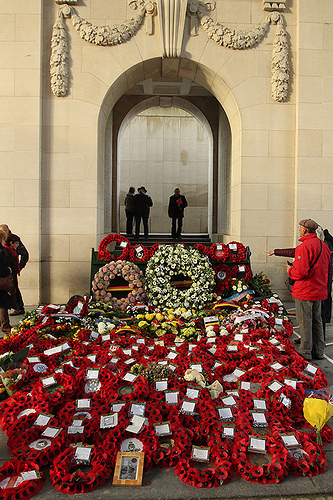It didn’t end all wars as it was supposed to do and it’s still creating conflicts a hundred years later. The Commonwealth War Graves Commission has already started its enormous restoration project on every single stone and cemetery, in total 24,000 locations and 150 countries.
But how would it be best to commemorate this conflict, which took the lives of so many millions of people and completely changed the course of human history. While France and Britain might want to remember the conflict as a victory they won at a very expensive price, they don’t want to upset their current ally Germany, which lost the First World War.
Others say the real feeling of war and the madness of war can’t be remembered through a series of militaristic activities and that the focus should be to maintain peace all over the world. So how should we pay our respects to the fallen ones?
It all began when Bosnian Serb nationalist killed the heir to the Austro-Hungarian Empire, Archduke Franz Ferdinand, on July 28, 1914. Austria-Hungary declared war on Serbia. Four days later, Russia and Germany declared war on each other, while the very same day, France ordered a general mobilization. 20 million soldiers died by the end of the conflict, the Los Angeles Times reports.
In Britain, activities of remembrance will be running for four years, including museum tours, lectures, films, school trips and history projects.
French President Francois Hollande has invited all 72 nations engaged in the war to join him for the war’s annual military parade, which is going to be held in July, in Paris. France, who lost over 1 million soldiers is yet to unveil its latest monument recalling the 1914 Battle of the Marne, in which half a million soldiers died or were wounded in less than a week.
Germany is planning to put on a series of exhibitions to mark the 100th anniversary and to emphasize the ‘sense of European Union unity’ over the years. “Our look is at reconciliation, to have as many former enemies together as possible and to show that we have learned from our mistakes,” said a spokesman for the German Embassy in London, Mr Norman Walter.
In the meantime, disagreements continue over the significance of the war as some say this war should never had happened. However, it will not be like it was 50 years ago, when veterans were still alive to tell the stories and prevent dispassionate discussions. Not so many are still alive today.
